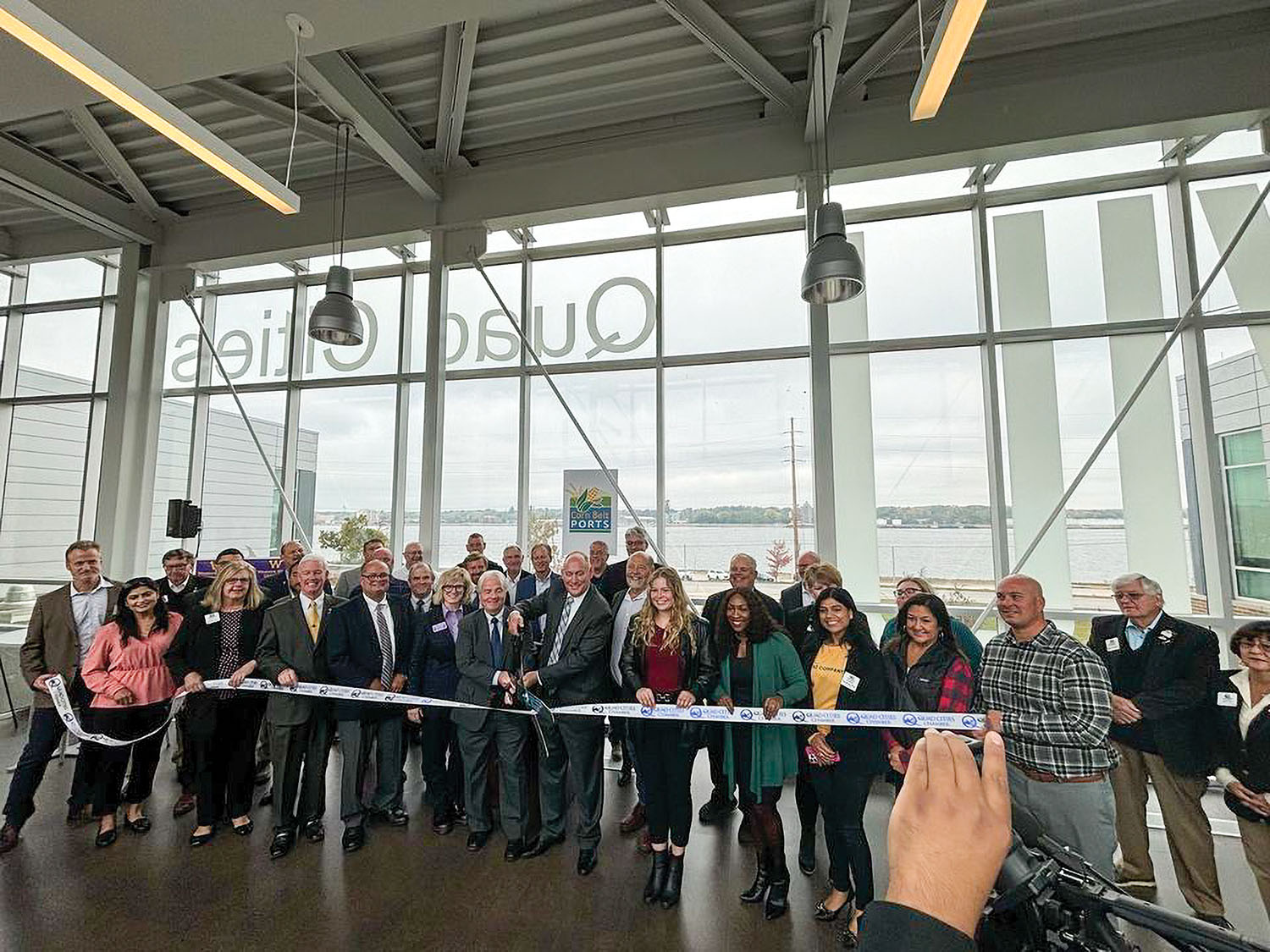A ribbon-cutting ceremony attended by representatives of several elected officials representing the region was held for the new Corn Belt Ports office on October 19 on Western Illinois University’s riverfront campus in Moline, Ill. The Corn Belt Ports now has an office in each of its four regions. It’s the latest milestone in a series of them that the Corn Belt Ports has been racking up.
Guests included representatives and aides of Sen. Joni Ernst (R-Iowa), Sen. Tammy Duckworth (D-Ill.), Rep. Eric Sorensen (D-Ill.) and Rep. Mariannette Miller-Meeks (R-Iowa).
The Corn Belt Ports are a group of ports located in the tri-state region of Illinois, Iowa and Missouri. Located on the Upper Mississippi River and the Illinois Waterway, the Corn Belt Ports are the largest grain-producing and exporting region in the country.
Executive Coordinating Director Robert Sinkler, the former commander of the Rock Island Engineer District who has been instrumental in creating the Corn Belt Ports statistical districts, told local media, “The whole purpose of creating the Corn Belt Ports was to get the national attention necessary. The larger Corn Belt Ports region has attracted over $2 billion in federal investment since the bipartisan infrastructure bill was passed, and we want to continue helping and contributing to the effort to let the nation know how important the region is to the global economy and national and global supply chain.”
In prepared remarks delivered by Doug House, Sorensen said, “The work of Corn Belt Ports, Colonel [Retired] Sinkler, the team members like soybean and grain producers and Western Illinois University bring much needed attention to an underutilized transportation asset, the Mississippi River. … The work that they have completed thus far will have far-reaching and generational impacts both economically and environmentally on communities on the entire length of our nation’s longest river and as well as its tributaries. We are seeing the benefits already. The raised profile of these regional port systems and its statistical work that has been completed identifies the Corn Belt Ports as central to the largest grain producing and exporting region in our nation and will aid the Congressman in his quest for additional resources for locks and dams, building on our national transportation hub. … Additional new resources will help us to construct the reliable river transportation system that our farmers and businesses need for the 21st century, with longer locks that are properly sized and better maintained channels.”
On October 11, the Corn Belt Ports received a letter of recognition from the Mississippi River Commission in a letter from Brig. Gen. Kimberly Peoples, its chair.



